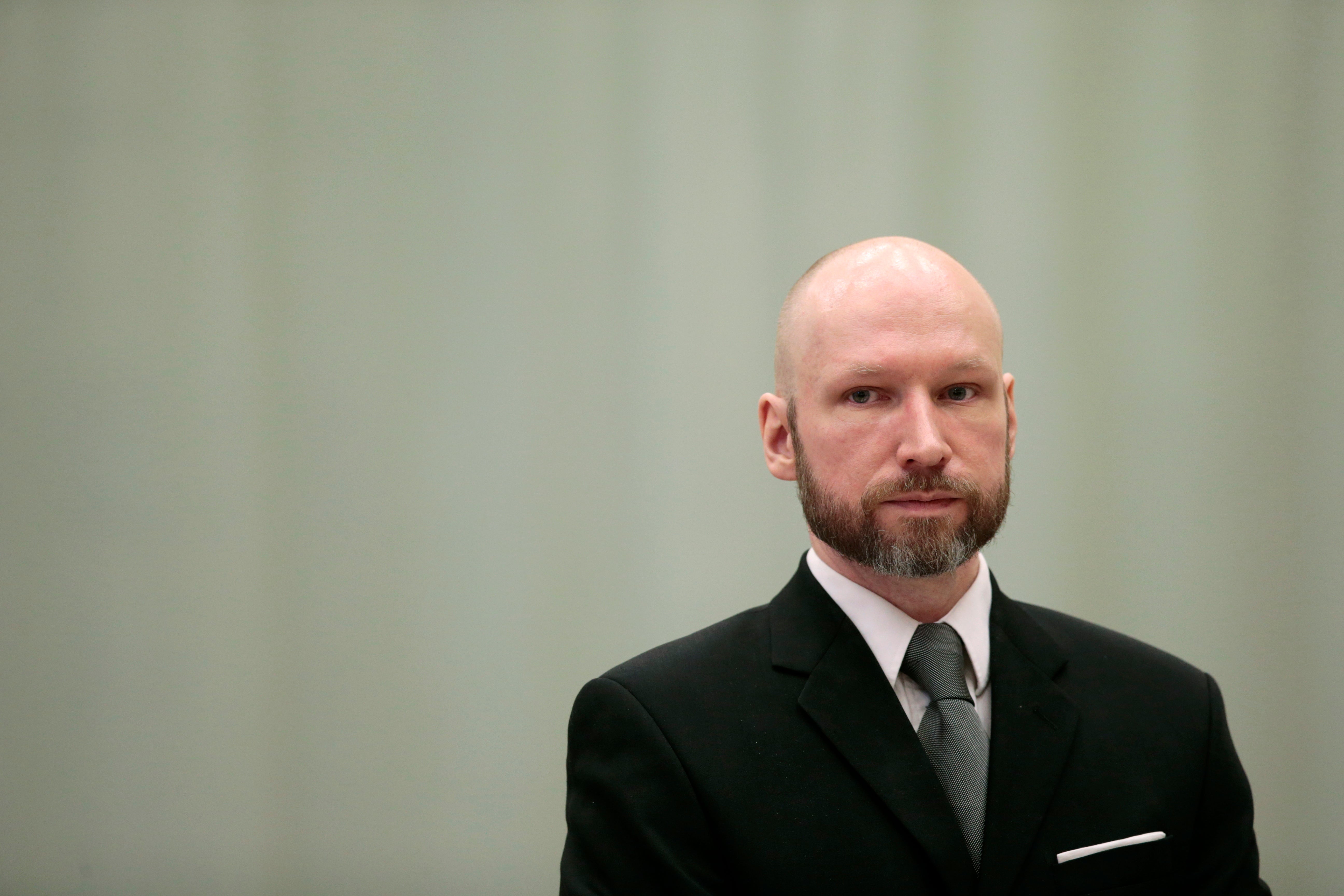‘An obvious risk’: Neo-Nazi Anders Behring Breivik denied parole
‘The risk of violence is real and significant and equal to what it was when (Breivik) was first sentenced,’ the court said

Neo-Nazi Anders Behring Breivik was denied parole on Tuesday, a decade after being sentenced to 21 years in prison for killing 77 people.
The Norwegian court ruled that Breivik had to stay in prison because he remained “an obvious risk” and could return to the behaviour that led to the terror attacks of July 2011, where he carried out a massacre in Oslo.
On the first day of the parole hearing in January, Breivik made a white supremacist sign with his fingers before raising his right arm in a Nazi salute. He was eligible to seek parole after serving the first 10 years and can apply for release a year after each rejection.
During his testimony he blamed online radicalisation for his crimes, saying he had been brainwashed and said he would continue to fight for white supremacy through peaceful means.
Several testimonies, including a psychiatrist and a prison guard, described him as someone who can’t be trusted and who could commit more crimes.
"The risk of violence is real and significant and equal to what it was when (Breivik) was first sentenced," the district court in Telemark said in a unanimous verdict.
Last year Norway marked a decade since the attack.
The country commemorated the day with a memorial service outside what was once the prime minister’s office, where the bomb was detonated, killing eight people.
Then prime minister Erna Solberg called on Norwegians to build a “fortified bulwark against intolerance and hate speech, for empathy and tolerance” and “not let hate stand unopposed”.
Join our commenting forum
Join thought-provoking conversations, follow other Independent readers and see their replies
Comments
Bookmark popover
Removed from bookmarks